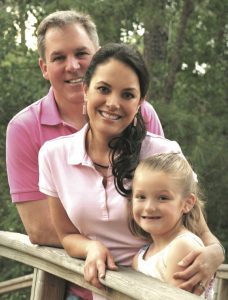Mexico City, Aug 31 (EFE).- Mexican opera singer Barbara Padilla, a cancer survivor who worries that misinformation makes many people hesitant to donate blood or tissue, says that in the case of bone marrow, donors face only a simple, non-surgical procedure.
The Guadalajara-born Padilla, a 2009 finalist on the US television show “America’s Got Talent,” suffered with bone-marrow cancer for more than five years, but emerged with her soprano voice intact and the lesson that saving someone’s life can be easy.

“When you learn that the four hours you donated saved a person’s life, you believe that your life is worth it,” she told EFE in an interview.
Padilla understands that the idea of donating bone marrow “is very scary” as a result of widely held misconceptions about the process.
The truth, she says, is that the procedure is as painless as giving blood, as bone-marrow stem cells are drawn through a syringe.
“You won’t ever miss those stem cells,” she said.
Padilla, 43, knows whereof she speaks, having provided the bone marrow tissue required to defeat her own cancer.
As a student at the University of Guadalajara, she noticed some “asymmetric growths” on her neck and was diagnosed with Hodgkin’s disease.
Five years of treatment showed that “nothing worked, except music,” Padilla says, recalling that she never interrupted her career despite “being chained to a hospital bed.”
One day, Harlen Snow, a physician who was also Padilla’s voice teacher, offered to pay for a trip to Houston, Texas, to obtain a second opinion.
The doctors in Houston told her that while she needed a bone marrow transplant, she was not a suitable candidate for the procedure.
Amid the gloom, Padilla’s friend Peter Jacoby, then director of the Houston Opera, asked her to audition, which led to the Mexican soprano’s getting a full scholarship to study music at the University of Houston.
When doctors detected another anomalous growth in her neck, they prescribed intensive radiation therapy and warned Padilla that she would never sing again.
But Padilla retained her voice and chemotherapy rendered her bone marrow suitable for an auto-transplant.
